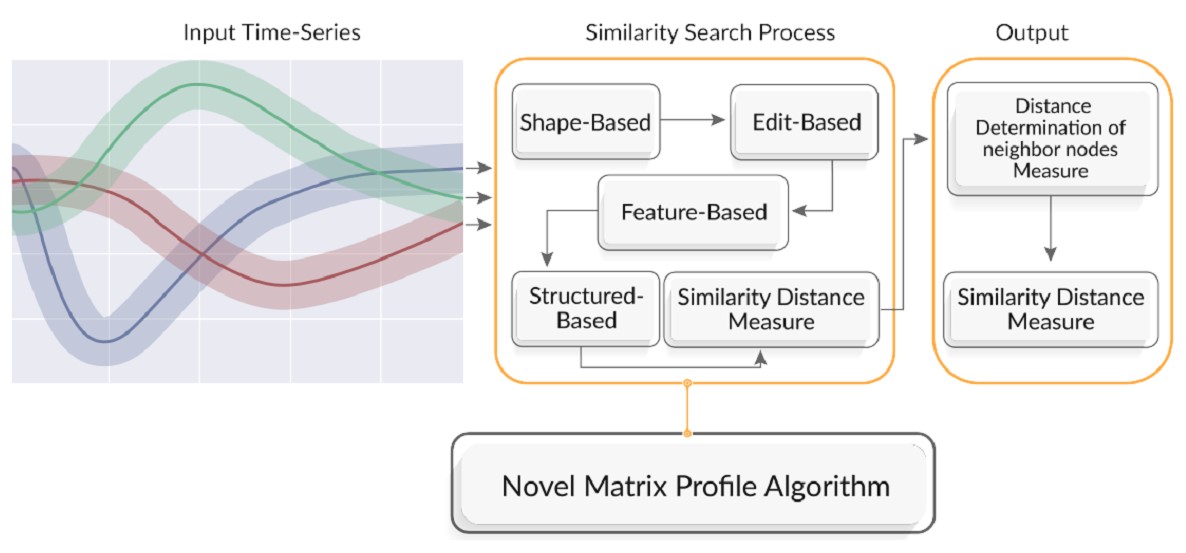Time series data are significant and are derived from temporal data, which involve real numbers representing values collected regularly over time. Time series have a great impact on many types of data. However, time series have anomalies. We introduce hybrid algorithm named novel matrix profile (NMP) to solve the all-pairs similarity search problem for time series data. The proposed NMP inherits the features from two state-of-the art algorithms: similarity time-series automatic multivariate prediction (STAMP), and short text online microblogging protocol (STOMP). The proposed algorithm caches the output in an easy-to-access fashion for single- and multidimensional data. The proposed NMP algorithm can be used on large data sets and generates approximate solutions of high quality in a reasonable time. The proposed NMP can also handle several data mining tasks. It is implemented on a Python platform. To determine its effectiveness, it is compared with the state-of-the-art matrix profile algorithms i.e., STAMP and STOMP. The results confirm that the proposed NMP provides higher accuracy than the compared algorithms.

